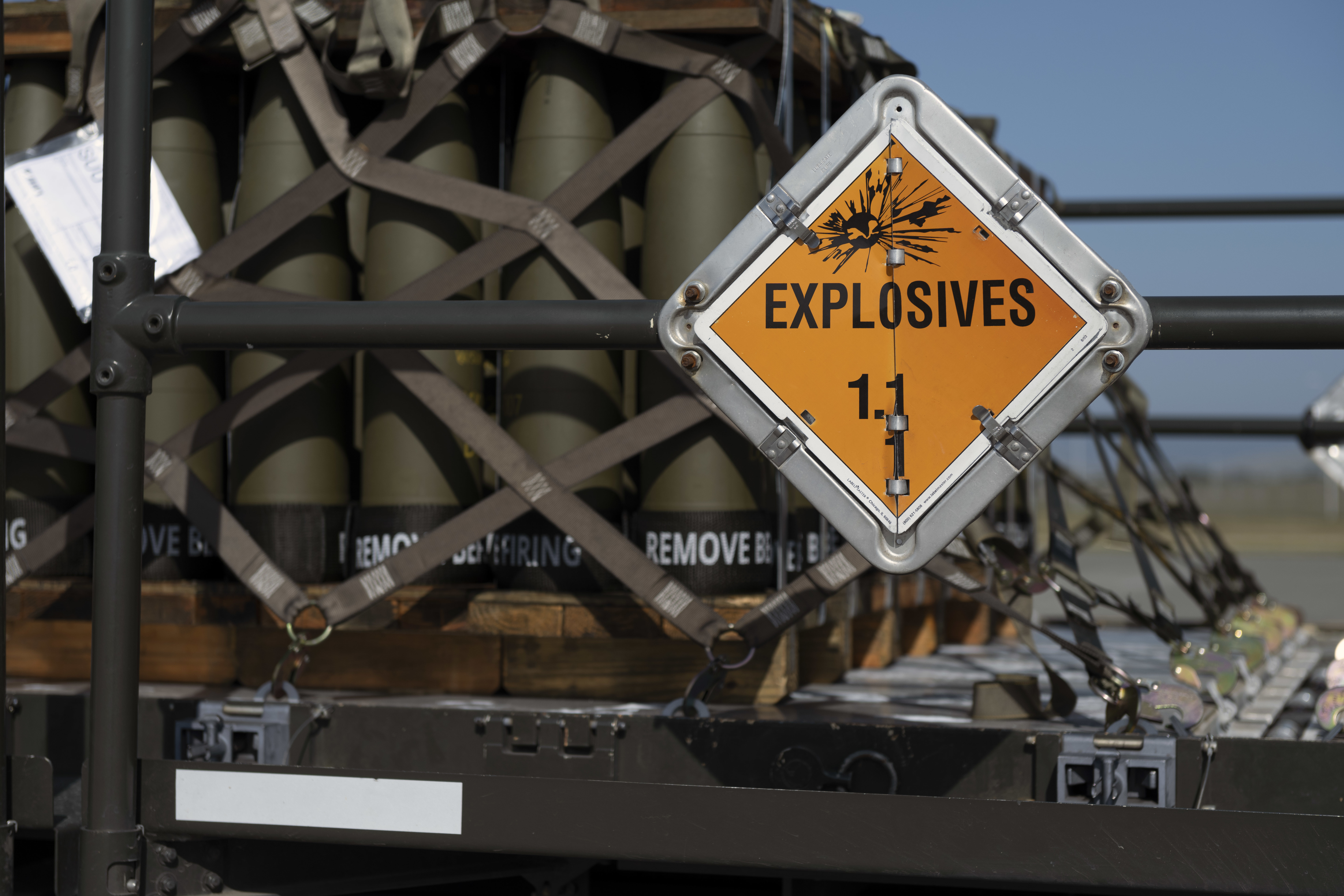
Ukraine needs more ammunition and humanitarian aid as it continues its long war against invading neighbor Russia, speakers stressed at a Hudson Institute event.
The Ukrainians are “making huge achievements” like disabling 30 percent of Russia’s Black Sea Fleet and reclaiming about half of the territory Moscow occupied following its 2022 invasion, said Lt. Gen Karel Rehka, chief of the Czech general staff, and Oksana Markarova, Kyiv’s ambassador to Washington said last week.
“This is a winnable war,” Markarova said, if the United States, Europe and democratic nations remain unified. “It’s time to double-down” that support. She added, “we can be stronger than Russia, supported by North Korea and Iran.”
Forty percent of Moscow’s economy has been put toward the war – manufacturing ammunition and weapons, Rehka said at the Hudson Institute event. At the same time, dead and wounded number about 300,000 as the Kremlin has turned to “frontal assault” tactics on the battlefield, stressing Russia’s manpower reserves.
Ukraine can be successful if it has the resources it needs, said Mark Newton, minister counsellor defense at the British embassy. He noted London has committed an additional $3 billion recently to supply additional tanks, air defenses and unmanned systems support with Latvia. He added the sea drones are included in the new package to clear mines, provide surveillance and reconnaissance and continue to attack the Black Sea Fleet.
With outside support and continued strong resistance to the invasion, “Russia is still stuck at Step 1” in its plan to take over the country by force, Markarova said.
Rehka noted it was Ukrainian’s “will to fight” instead of collapsing in a few days that convinced the United States, Europe and other allies and partners to rally to Kyiv’s side with arms and aid.
In the half-day symposium keynoters and panelists remained optimistic that Congress will pass a $60 billion supplemental military and humanitarian aid bill for Ukraine. Hudson panelist Rebecca Heinrichs added much of that military aid actually would be spent in the United States to rebuild stockpiles of weapons and ammunition sent to Ukraine since 2022.
The Pentagon continues to work with allies and partners to keep Ukraine supplied and is prepared to send American materiel to Kyiv as soon as the supplemental is signed into law, said U.S. Air Force Lt. Gen. Leonard Kosinski, director of logistics on the Joint Staff.
Ukraine’s most immediate need is artillery ammunition, Jires said. Prague spearheads the worldwide initiative to buy 155mm rounds for Kyiv and spur defense industries in ramp-up production. He noted one German firm is now manufacturing more 155mm rounds than the United States.
While a number of non-European nations want to support Ukraine militarily, “they need a middleman” to avoid Russian retaliation, and Prague is providing that shield through the initiative.
Despite the planning for sophisticated high-end warfare requirements, “sometimes, you need bullets to fight bullets,” Kosinski said. He and Jires agreed that Europe’s and America’s defense industrial base need re-tooling and a younger workforce.
In Europe, revitalizing the defense industrial base also requires a “culture” focus shift inside financial institutions and banks to invest in this manufacturing sector, Jires said. Kosinski said the war has also shown the United States and others the value of tele-maintenance to adjust and repair the varieties of weapons Kyiv is using. 3-D manufacturing when done to scale close to the front has also proven its importance and “not just for Ukraine.”
Newton added that the United Kingdom, in addition to sending weapons to Ukraine, is providing the schooling necessary to maintain and repair them.
Markarova and Newton noted that Ukraine has been directly engaged with Russia militarily since 2014 when it seized Crimea and armed separatists in eastern provinces.
Instead of being on a path to democracy as provinces were, “Crimea has taken the brunt” of Russian brutality and aggression, Newton said. He pointed to illegal political detentions and jailings, suppression of religious freedom, kidnapping of children and sending them to Russia and now conscripting Crimean men to fight for the Kremlin.
“Appeasement has never worked with dictators,” Markarova said. “Believe in Ukraine and stay with us.”





